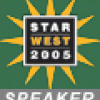People & Teams
Articles
 |
Executor or Engineer Software testers are typically grouped en masse in the world of information technology (IT). Many in the software testing profession, however, know that this should not be the case. In this column, Dion Johnson exposes the dichotomy in testing that has produced two distinct groups—software test engineers and software test executors—and why these groups are embroiled in a struggle to possess the crown as the industry's true software quality professionals. |
|
 |
Unearthing Buried Feedback Most managers realize that giving feedback is an important part of their job. But not all managers are skilled at providing feedback. Some make vague comparisons, mistakenly apply labels as feedback, and others just hint and hope you'll get the message. Esther Derby offers advice on how to probe for the information that will help you understand your manager's concerns when he doesn't state them clearly. |
|
 |
Is the Grass Greener on the Other Side of the Fence? We may be creatures of habit—adhering to and promoting processes we know well—but we also habitually look to other work environments that appear capable of nurturing our ideas once an old environment becomes depleted. Ed Weller believes that searching for greener pastures is unnecessary. You just need to learn how to cultivate your managers in order to create an environment that will harbor your ideas. Ed explains why you'll end up grazing fruitlessly if you can't plant your ideas with management. |
|
|
Information Gathering If your customer interview questions focus too narrowly on a problem that must be solved, you run the risk of missing information that could be critical to a successful outcome. In this column, Naomi Karten says playing detective improves your ability to gather information. To improve the odds of success, it's important to ask questions from multiple perspectives—and to pay attention not only to the customers' response, but to how they say it as well. |
||
 |
Openness, Trust, and Healthy Paranoia Trust must be earned in any relationship; it is not automatic nor can it be assumed. You only learn how much you can trust someone over a period of time. The same principle rings true in project management. In this week's column, Peter Clark shares a valuable lesson for project managers and other management professionals, demonstrating that a healthy level of paranoia must precede openness. If openness is premature, one's trust could prove to be unfounded in the end. |
Peter Clark
July 15, 2005 |
 |
What's on Your Not-to-Do List? Drawing up a to-do list sounds like a logical starting point when you want to prioritize your workload. But if you have an extra-long list of tasks, the list you should start with is the not-to-do list. Doing so forces you to take an extra hard look at what you're doing and if you should be doing it. Learn more about Johanna Rothman's not-to-do list, how it helps you stay focused on the most important tasks, and how it inevitably helps you maintain your value to the organization. |
|
 |
Free Time is Not Free Unpaid overtime has negative personal and business consequences. Although regarded as free time by many organizations, there is a true business cost to not estimating or counting overtime hours, whether paid or not. Ed Weller presents the argument that those who do not count free time in their planning and tracking will make poor decisions and often invest in the wrong projects. |
|
 |
Peer-to-Peer Feedback When people work closely together, there's bound to be friction and irritations. Some people find it difficult to bring up these issues directly, so they hint and hope. And when the hint doesn't help, the irritation can grow out of proportion. Team members' ability to give peer-to-peer feedback both about work and interpersonal relationships is critical to developing a highly productive team. Esther Derby tells us about a team torn apart by an unattractive personal habit and offers some advice for talking about touchy interpersonal issues. |
|
|
A Mind-Changing Exercise After reading Naomi Karten's StickyMinds.com article "Thinking Inside the Box," in which she mentioned an experiential exercise she had facilitated, numerous readers contacted her to learn more about conducting such exercises. In this column, Naomi Karten describes one of her favorite team exercises, with details on how to conduct it and what to expect when you do. |
||
 |
Let Me Get Back to You Sometimes the best thing that can be said during a confrontation is nothing at all. But if you're forced to respond, just promise that you'll get back to the situation at a better time. In this week's column, Peter Clark recalls a time when a competitor completely extinguished any chances of striking a business deal by letting his temper flare...in front of an audience during a teleconference call. From that incident, Peter learned to recognize when people are dangerously reaching their breaking points. No longer intimidated by temperamental barks, Peter explains how he keeps his cool during battle. |
Peter Clark
April 8, 2005 |







